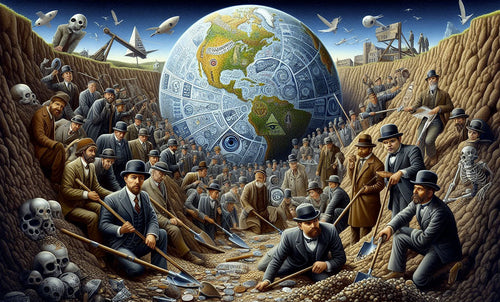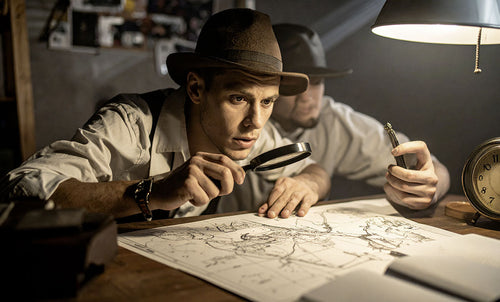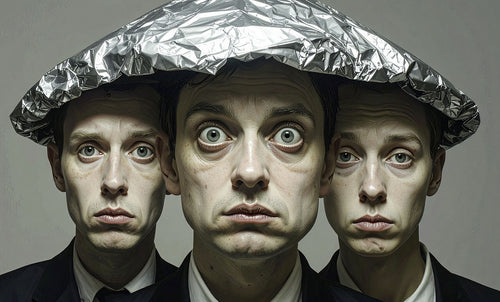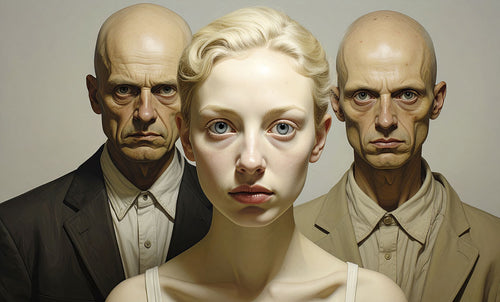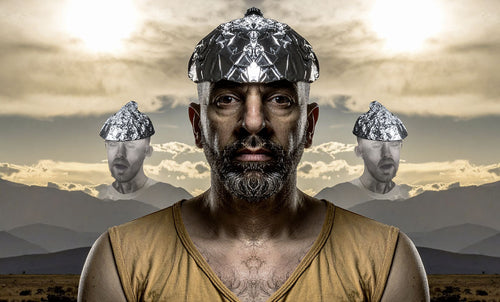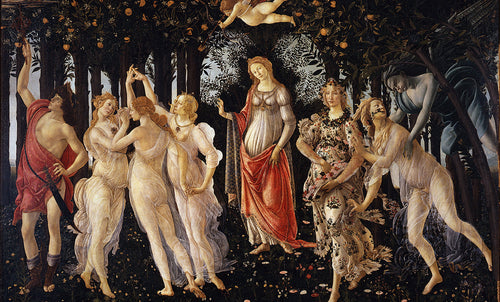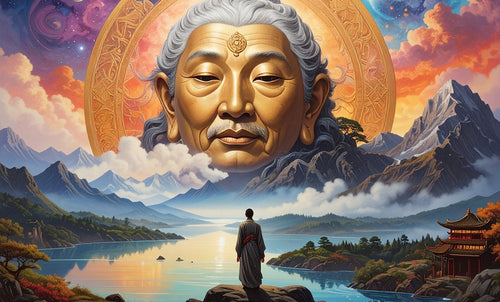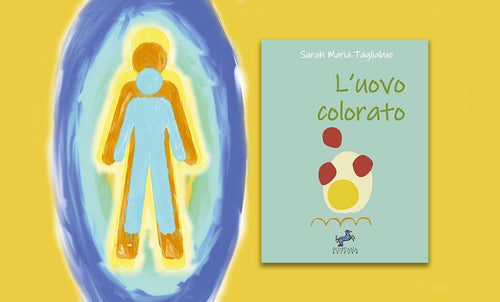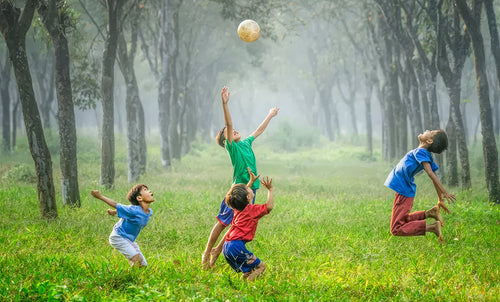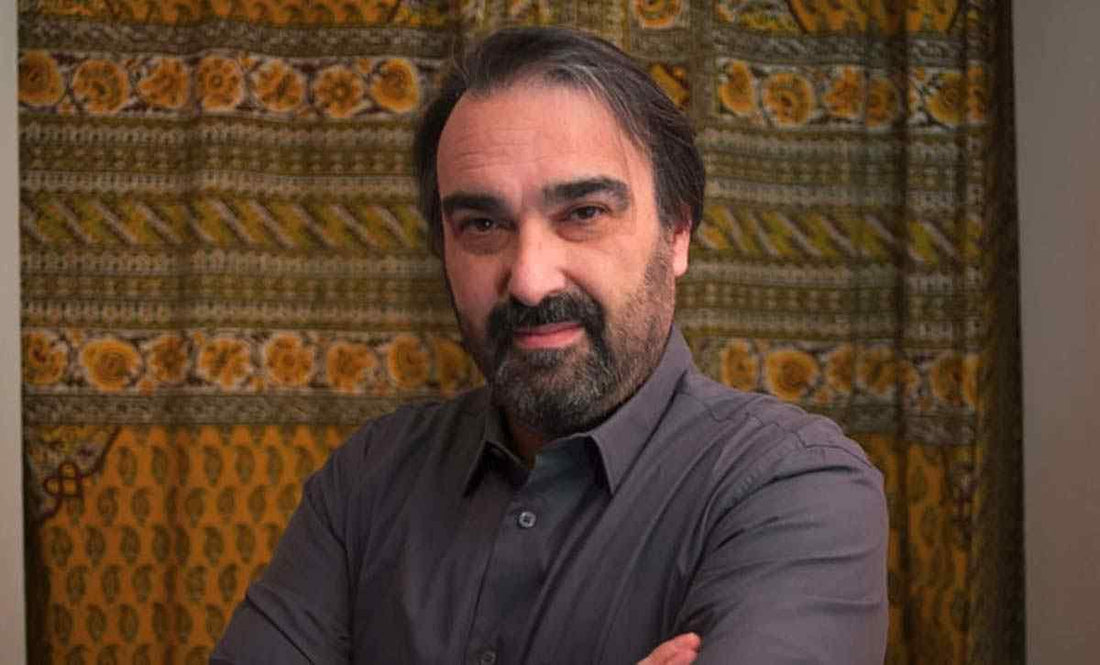
Rocco Fontana: the publisher from the Fourth Way
Paola MarchiRocco Fontana, born in 1964, is a publisher of books, ebooks and the international magazine Nitrogeno. A man of Quarta Via, he deals with communication and information.
As a good Trentino, he is a man of few words, which makes the interview even more interesting, because silence very often hides interesting food for thought, and this is one of those cases.
Hi Rocco, it is an honor to be able to interview you, since we know each other well and I respect you a lot it will be difficult to remain “detached” as our dear Master George Ivanovich Gurdjieff would like, but I will do everything to extract your essence through this interview and deliver it to the Pink audience. The first question that comes to mind is: why did you choose to be a publisher? Wouldn’t it have been better to continue “working at the post office”?
In fact, there were many other activities that I could have undertaken (laughs) but publishing, after a few years of hanging around it, called forcefully. Let's say that I was chosen - I started backwards - and I had to respond to an impulse so forceful that I could not ignore it. This gave a more precise direction to my personal path, which as you recalled, starts from the experience of the Fourth Way and the teachings of George Ivanovich Gurdjieff and finds a natural continuation with Zen meditation and Alchemy. In my opinion, being a publisher is an activity of Service, both towards the public and towards my authors.
Your publishing house deals with Alchemy, Spirituality, Science and Art, very delicate themes to mix. Let's start with the combination of spirituality/science because it seems like an oxymoron that reveals a lot about your personal journey as a man of the Fourth Way . Can you tell us something about it?
The approach borrowed from the Fourth Way is very pragmatic and absolutely scientific, in the broadest sense of the term. Know thyself, doubt, investigate and verify for yourself – as well as share – are essential imperatives for a healthy and fruitful development of one's Self. This also applies to the more spiritual aspect of the path, it also applies to meditation, Zen (non) thinking or devotional practices. The topics I deal with in my publications must reflect this line, because the purpose of these books is to provide useful tools to those who seek to work on themselves. I hope to stimulate questions rather than give answers. Alchemy, Spirituality, Science and Art, in my opinion, are faces of the same diamond: one is made up of the other three; how could one doubt, for example, that Alchemy is not made up of Science, Spirituality and Art? And how could one doubt that Science (the integral one) is not made up of Alchemy, Spirituality and Art? This year I have many new books in the works and just as many authors with whom I share the same goals of service.
As for Alchemy, what kind of publications do you prefer?
A: Regarding Alchemy, the topic is so vast that it becomes difficult, at least for me, to find the end of the thread. Personally, I am interested in the approach of the alchemist, who loses and finds himself through constant practice, a highly symbolic but at the same time absolutely concrete and practical way of doing things. I am interested in the modern and future developments of Alchemy, which has lost its mysterious and secret connotation and now finds expression in all that border science that is creating wonderful things and broadening the horizons of knowledge. With Leonardo Anfolsi, a Zen monk and alchemist, we have created a magazine: Nitrogeno (in English), which deals with this. It is currently being restyled to adapt to ever wider horizons.

Your father is a famous painter, did you inherit from him your sensitivity to the world of art and the dimension in which an artist lives?
My father has always been a multifaceted artist, capable of undertaking any path with great quality and sensitivity: he is a painter, engraver, photographer and sculptor, without interruption. It is well known that he passed on his creative abilities to all four of his children – I always say that it is a genetic factor -. Personally, I have not felt the need to become an artist like him, but I certainly share his sensitivity and ability to imagine and create things; let's say that mine is more of a Kamikaze artisan approach (laughs).
Speaking of research, tell us in your experience, what does it mean to work on yourself?
Working on oneself is the most unsuccessful thing there is, expectations and illusions are constantly disappointed; it is frustrating. But when we get tired of the struggle and give up, in surrender we can begin to get in touch with the Mystery of who we are. Working on myself has become an essential condition of life, it is the air, it is the discovery of my meaning of life, it is the discovery of my courage. As I came of age I began to feel discomfort and intolerance for what life seemed to be offering, and I began to ask myself questions and look for answers. From here my encounter with the figure of Gurdjieff and his teachings, thanks to an interview with Franco Battiato who mentioned him (in a fashion magazine). After many years of work in a Quarta Via school, I continued in a personal, often disorderly, but constant way. Gurdjieff and his teachings constituted a fundamental basis from which to start but also a burden to leave on the path. I won't go into details because it's an individual journey that only makes sense to me. Externally, this work doesn't make me a superhero, but it does make me capable of the resilience needed to go through life in a fruitful and interesting way.
Can you send a message to Pink's audience, what do you say?
I would like to thank those who have read this far. I realize that the presence of an interview like this in a prestigious magazine like Pink may seem like a pushover. I hope I have encouraged you to take a closer look at me, my books, and my authors.
The original article appeared on Pink Magazine, which we thank for the kind permission >>

